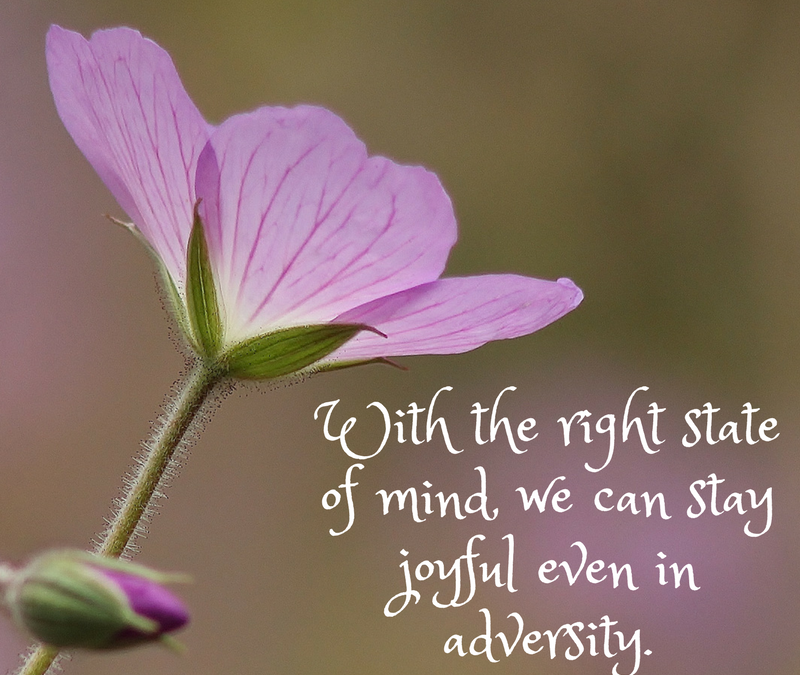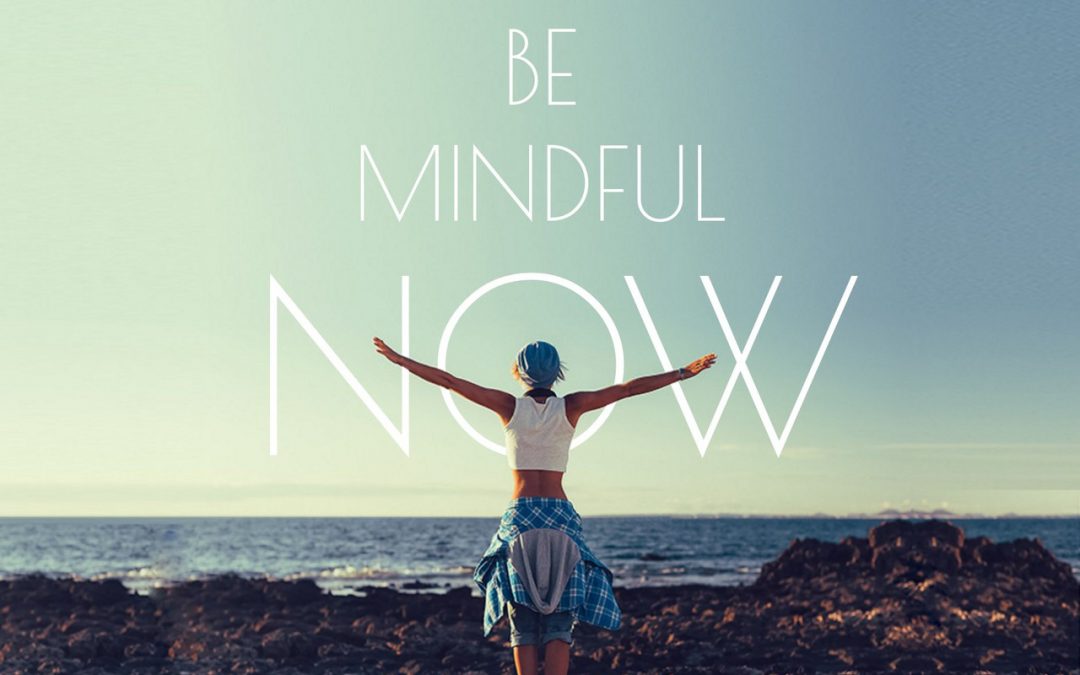
by Vera Bellamy | Sep 21, 2022
We have the apparatus to be happy, says Dan Gilbert, author of Stumbling on Happiness.
His study found is that our frontal lobe helps us create a psychological immune system to fabricate happiness anytime we want. What are the applications of this study for us chasing happiness everyday of our lives?
Happiness is not linked to outcomes. “Happiness is not a thing to be found,” says Gilbert. It doesn’t matter if you get this particular job or find that particular relationship. Any other possible outcome can make us feel as happy as the one we really focused on in the first place.
The wisdom here is that changing goals or taking a different route from the one you envisioned would not make you less happy.
Or we could say that atttachment and ungrounded expectations could lead to unnecessary disappointments. Having a more relaxed view of things and of life in general, and having flexibility will surely lead to more happiness.
Having too much freedom to choose or change, says Gilbert is the enemy to happiness. This is definitely a shocking revelation, right? But it is exactly what this study found. Our psychological immune system works best when you have limited choices, for example when we are married. So if you are married and feel unhappy, maybe you could reconsider your happiness quotient, work on your marriage, add a few more grateful things to the situation, and change your view about the alternative options to more happiness.
The idea however of reducing your options frees you to make better choices with less stress and can, in fact, lead to greater fulfillment.
Another point the author makes is that having too much ungrounded passion and ambition in life can lead to disastrous results. I think that we can find plenty of examples in all walks of life to demonstrate this statement. But the main point here is that nothing in life is as important as keeping your integrity intact. Anytime you have to lie or cheat, or compromise your values, you are taking the risky road of becoming unhappy.
When we understand that happiness is not a goal or a thing but originating in our own physiological makeup, we can empower ourselves to lead fulfilling and rewarding lives.This is a very wise study supporting the idea that we create our own happiness.

by Vera Bellamy | Jun 14, 2022
Most people would probably agree that our world needs empathy.
The dictionary defines empathy as the action and the capacity of understanding, being aware of, and being sensitive to the feelings, thoughts, and experiences of another person.
If we can feel our own pain, can we naturally fee the pain of other human beings or animals? Are we really wired for empathy, or do we learn empathy?
Psychologists talk of three types of empathy. Cognitive empathy is when you can put yourself in somebody else’s shoes. We cognitively understand what people are going through. Understanding that somebody is hurting is limited, as it doesn’t produce the kind of acknowledgment the other person needs.
Emotional empathy is when you feel and sympathize with the feelings and emotions of others. We need this capacity to maintain relationships and friendships. Some people are better at this than others, for example therapists. Emotional empathy can be treacherous for sensitive people. Feeling somebody’s else emotions and pain without boundaries can cause you to become ill.
To have healthy empathy, we must practice Compassion. With compassion we understand and we feel for someone else, but also are capable of holding a safe place for them to have their own emotional experiences. Compassion is felt more in the heart. We are extending our heart to someone else’s heart, thus making the other person feel seen, heard, and acknowledged.
Transformation is a process. As we heal, we also learn and develop more empathy. Feeling the pain of others is an essential component of good health.

by Vera Bellamy | Oct 3, 2017
I would like to take you into the world of the placebo and show you how powerful a thought or a belief can be in making you feel better.
Imagine participating in a surgery trial where there is a 50% chance that you will receive a fake surgery. You are made to believe that your surgery is real and that an actual surgeon performed the surgery on your spine. Miraculously, you feel better after the surgery despite the fact you were in the fake pool, but you don’t know it.
“It appears that the mere belief that patients had received a potent treatment was enough to ease-and in some cases banish-their symptoms,” says Joe Merchant about this real spine surgery study in her book Cure.
This is one example of the placebo effect and the power of belief to improve and make our health better. The Italian neuroscientist Fabrizio Benedetti, who is the biggest expert on placebo in the world, thinks that placebo can be applied in all areas of life from sex to music, writes Merchant. Maybe just by believing that the music is wonderful, its effects on us will be more powerful in terms of positive emotions and experience.
Beneditti’s team in Italy is conducting real studies on the placebo effect, and measuring the role belief plays in improving symptoms. Let’s say you take a drug and you feel better after taking it. The kind of questions they would be asking are: Is the improvement due to the medication you took or your belief that you took the medication? And it looks like this can be measured through clinical trials, according to Merchant’s research.
The placebo has been proven to work for a variety of psychiatric disorders like anxiety and depression. The more we know that we are taking the medication, the stronger the effect. For example, Joe Merchant says that Benedetti has discovered that Valium, which is an old drug for psychiatric disorders, has no effect unless patients know that they have taken it. Studies show that some painkillers are effective only if we know that we have taken them. If we don’t know that we took them, they don’t work.
When scientists discovered endorphins- the brain’s natural painkillers, it became natural to inquire if taking a placebo triggers the release of endorphins in the brain. And they have discovered that it does. This is how the science of the placebo was born. There is a mapped out neuro-chemical mechanism occurring after taking a placebo.
A study at the University of British Columbia discovered that when a placebo medication is given to patients with Parkinson’s, physiological changes do occur in the body, as dopamine levels increase significantly. In some trials involving Parkinson’s disease patients, the placebo effect has been shown to have the same effect as a response to a real drug.
So something interesting is going on in our bodies, and probably by extension, to our external realities, when our minds are focused on sending a positively charged belief and thought. At least scientifically, the placebo effect has been proven to reduce symptoms of patients and improve the quality of their lives. So let’s ponder on that, and when you feel down, think of the placebo and how you can apply it to your own life to turn things around. Hmm, something to consider today for everyone. As I’ve heard Joe Dispenza say, we are the placebo effect.
Source: Jo Merchant, Cure: a journey into the science of mind over body, 2016

by Vera Bellamy | Sep 20, 2017
Listening to the news about natural disasters or phenomena happening everywhere around the globe, I couldn’t stop thinking about what is needed of us, when events of such magnitude threaten our material and physical security?
The earth is always evolving and changing, and the changes are opportunities for us to grow and learn as human beings.
The uncertainty of the events, and of life in general, teaches us that certainty can be found only inside of us. If we have a strong core and a strong sense of who we are, we will face these events with courage and calm.
The truth is that life is all about learning how to live with uncertainty. And becoming more comfortable with not knowing what tomorrow will bring.
That is why we need to develop courage. If we cultivate courage as a human quality and if we recognize the value of becoming courageous, we will fare much better in times of high stress and uncertainty.
If you don’t have courage, you will let your anxiety and fear topple your calm, when what you need the most is calm and self-control.
If you don’t have courage, you will not be able to examine the information given to you, and to make the right decision for yourself and your loved ones. You will let negative thinking, thoughts and feelings of gloom and doom, overtake you and make you lose your ground.
Without courage, you will hastily abandon your property, your pets, your life and embrace the fear of others.
Courage is the quality to stand on your own, to think on your own, to listen to your radar system, and to be plugged into a deeper awareness and intelligence. Courage allows you to say no to the herd mentality, and to always act with dignity and empathy.
In times of volatility and uncertainty, we need to learn to stay present, grounded, and to trust our senses.
And most of all, we need to trust life and to trust ourselves and that requires a lot of courage!
I am inviting you to start examining yourself, setting new intentions, and developing and living with more courage!
Give me a lever long enough and a fulcrum on which to place it, and I shall move the world. – Archimedes

by Vera Bellamy | Aug 26, 2017
I felt that August 21th, the day of the Solar Eclipse, was an extraordinary day in the U.S. I bet that almost everyone was able to step out of their worries and dilemmas, and look up to the heavens for magic. So many people were feeling happy thanks to the moon hiding the sun, thanks to a natural phenomenon that excited our imagination, vision and hope. I felt the happy vibes myself, and I am sure than many people did as well.
These events are glimpses of how interconnected our minds are with other minds and objects in this holistic reality. Or as Dean Radin says in his book, Entangled Minds: “It is as though we live in a gigantic bowl of clear jello. Every wiggle-every movement, event, and thought-within that medium is felt throughout the entire bowl.”
Many scientists measure our subtle human entanglement through the coherence of the frequencies we emit. This is called global coherence or field consciousness research. I refer you to consult the Global Consciousness Project conducted at Princeton. On their first page one reads: “Coherent consciousness creates order in the world. Subtle interactions link us with each other and the Earth.”
That is partly why people meditate together for peace, or we have group peace or climate marches… the happy feelings of togetherness and joy experienced by us seem to amplify and spread, and this can be measured.
This could explain why when we are surrounded by happy people, we feel happier. Their vibration entrains coherence to our own less coherent states.
So the more we bring change to our consciousness, and the more we direct our attention to common goals for the betterment of all, we elevate our collective consciousness and influence the consciousness of others.
One piece of wisdom to take from this is that nature makes us feel happy, and that fascination with heavenly natural forces move us to a childlike joy. In rare moments such as solar eclipses, we realize that our lives are small pebbles in an infinite universe. So the question for everyone to ponder after this is that our own pebbleness matters, that the way we carry ourselves in the world, the joy and the happiness we emit, affects everyone around us and contributes to the subtle changes in the consciousness of our cities and the world. So let’s continue this happy project, chirp about it and create positive waves of change.
Blessings, Vera






Recent Comments